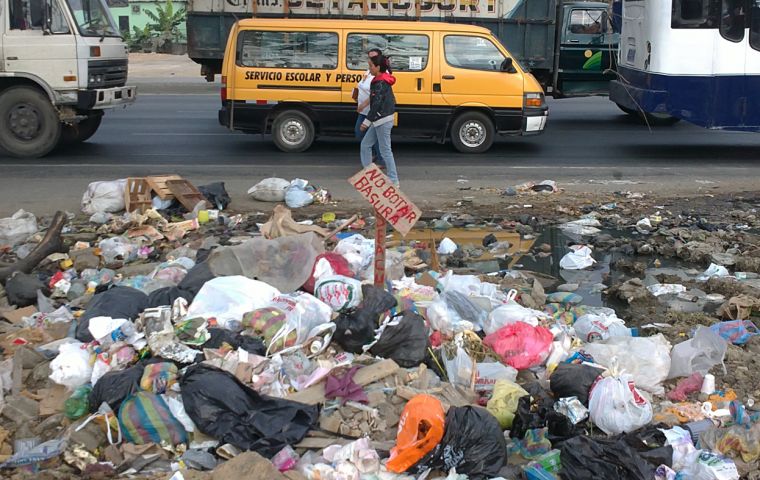MercoPress. South Atlantic News Agency
Ecuador combats pollution: recyclable plastic bottles exchanged for money to buy local transport tickets
 Guayaquil in Ecuador's southwest, is the second most populous city in the country with 2.7 million inhabitants, but it generates the most waste.
Guayaquil in Ecuador's southwest, is the second most populous city in the country with 2.7 million inhabitants, but it generates the most waste. Looking after the environment is paying off in Ecuador, at least for public transport users in the business hub of Guayaquil. A new scheme aimed at combating garbage and pollution allows people to exchange recyclable plastic bottles for money to buy bus tickets.
The port city, in Ecuador's southwest, is the second most populous city in the country with 2.7 million inhabitants, but it generates the most waste
Passengers who use the city's bus transit system, Metrovia, are now queuing at a newly installed machine, waiting to unload their plastic bottles for two cents each, which they can spend on public transport. Apparently it is proving more profitable than selling the bottles to recycling centers.
Guayaquil produces 4,200 tons of waste a day, only 14 per cent of which is recyclable.
There's one glitch in the current system, though. The machines pay out cash in return for bottles, meaning there's no obligation to use the money on bus tickets.
Metrovia manager Leopoldo Falquez admits the company is working on that. New machines are coming that will directly recharge bus passes, he said. So far there's only one machine but there are plans for a dozen, all to be placed in bus terminals.
Two years ago the local government placed rules on the production, sale and import of single-use plastics such as bags and straws.
Ecuador's war against plastic has extended also to other parts of the country such as the capital Quito and the Galapagos Islands, a World Heritage Site archipelago several hundred kilometers to the west of the mainland.
Plastics there have broken down into micro particles that have subsequently been swallowed by the unique fauna found nowhere else on the planet.
In the two months since the program was launched, more than 24,000 bottles have been collected.




Top Comments
Disclaimer & comment rulesCommenting for this story is now closed.
If you have a Facebook account, become a fan and comment on our Facebook Page!